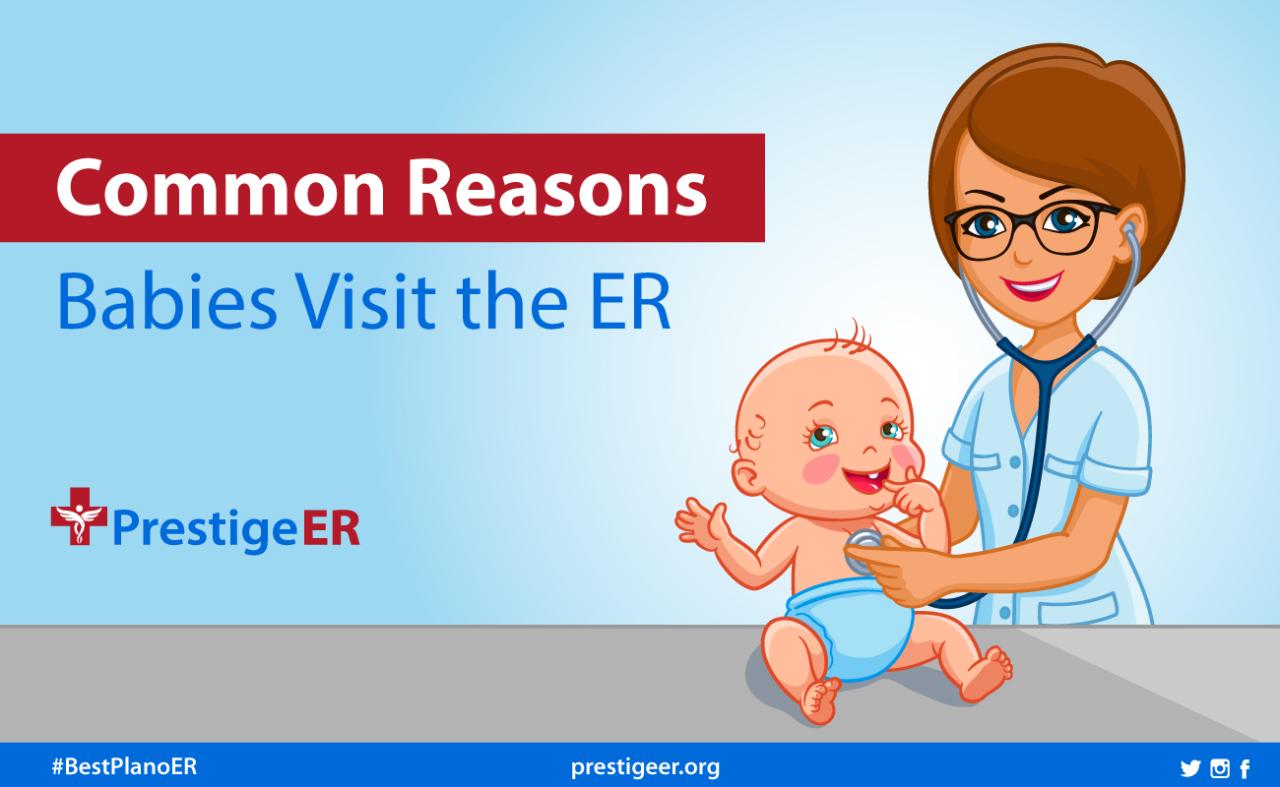
Raising a newborn when your office is an ER presents unique challenges. This isn’t your average work-life balance; it’s a high-stakes juggling act between the needs of a tiny human and the demanding environment of a hospital emergency room. Navigating the emotional toll, practical hurdles, and the impact on both parent and child requires careful planning, strong support systems, and innovative work-life integration strategies.
We’ll delve into the complexities of this unique situation, exploring strategies for success.
This exploration will cover everything from the emotional rollercoaster of balancing newborn care with the pressures of the ER, to the practical solutions for childcare and work-life balance. We’ll also examine the importance of support systems, the potential impact on the newborn, and innovative work-life integration strategies. Ultimately, we aim to provide a comprehensive guide for parents facing this challenging but rewarding experience.
The Emotional Toll
Juggling the relentless demands of a newborn and the high-pressure environment of an ER is emotionally taxing. The constant barrage of stressful situations, coupled with sleep deprivation and the fear of failing both as a parent and a healthcare professional, can lead to significant emotional strain. This is a unique challenge that requires specific strategies for coping.The emotional toll is compounded by the unique demands of both roles.
Parents in the ER often face the added burden of witnessing life-or-death situations, which can trigger anxiety and emotional reactivity. The constant need for vigilance and quick decision-making in the ER, alongside the unpredictable needs of a newborn, can create a feeling of being perpetually overwhelmed.
Stress-Inducing Situations
The combination of ER work and newborn care can create a multitude of challenging situations. These can include:
- Unexpected emergencies that require immediate attention, leaving little time for a newborn’s needs.
- Long shifts that stretch into the night, impacting the parents’ ability to provide adequate care for their newborn.
- A lack of support systems, whether familial or professional, to help with newborn care during demanding work periods.
- The emotional weight of witnessing severe trauma and life-altering events while also needing to be present for their newborn.
These situations can trigger feelings of guilt, inadequacy, and overwhelm, making it crucial to develop coping mechanisms to navigate these challenges effectively.
Feelings of Guilt, Inadequacy, and Overwhelm
These negative emotions are common responses to the dual demands of ER work and newborn care. The feeling of not being able to adequately meet the needs of both roles can lead to significant distress.
Raising a newborn while your office is an ER is a whirlwind, and it’s tough. Imagine juggling everything from feeding schedules to doctor’s appointments while navigating the constant buzz and urgency. It’s a real test of resilience, and stories like the one about how doctors saved an infant with 3 weeks to live how doctors saved an infant with 3 weeks to live are both heartbreaking and inspiring.
They remind you of the incredible work that’s happening even in the busiest of medical environments, and it makes you appreciate the normalcy of everyday life even more when you’re in a situation like this.
- Guilt can arise from missed feeding times, interrupted sleep, or perceived inadequacies in caregiving.
- Inadequacy is often felt when the demands of both roles seem insurmountable, leading to feelings of being unprepared or incompetent.
- Overwhelm is the result of the constant pressure and lack of respite. It can be amplified by the unpredictable nature of both roles.
Recognizing these emotions is the first step towards effective coping strategies.
Coping Mechanisms
Developing coping mechanisms is crucial for managing the emotional burden of this demanding dual role. Effective strategies include:
- Prioritizing self-care, such as getting enough sleep, eating nutritious meals, and engaging in relaxation techniques.
- Seeking support from family, friends, or support groups who understand the unique challenges faced.
- Establishing clear boundaries between work and personal life, to avoid blurring the lines and exacerbating stress.
- Seeking professional help from a therapist or counselor to address underlying anxieties and stress.
Parenting Styles and ER Work
Different parenting styles can impact how parents balance the demands of newborn care and their ER work.
| Parenting Style | Description | Effectiveness in Balancing ER Work and Newborn Care |
|---|---|---|
| Authoritative | Emphasizes setting clear expectations and boundaries while providing love and support. | Generally effective, as clear structure can help with time management and organization, allowing parents to better navigate the demands of both roles. |
| Permissive | Characterized by a high degree of responsiveness to the child’s needs but with fewer expectations or rules. | May prove less effective in balancing both roles due to a lack of structure and potential for difficulty prioritizing. |
| Authoritarian | Strict rules and expectations, with limited room for negotiation. | May be challenging, as it might not allow for flexibility needed to adapt to the unexpected demands of both ER work and newborn care. |
The effectiveness of each style depends on the individual’s personality and the specific circumstances. A flexible and adaptable approach is often the most beneficial in navigating the complexities of both roles.
Practical Challenges and Solutions

Juggling a newborn, a demanding ER job, and the everyday household tasks presents unique challenges. The constant pressure of managing both professional and personal responsibilities can be overwhelming, especially when dealing with the added emotional toll of a newborn. This section explores the practical hurdles faced and offers actionable solutions for maintaining a semblance of balance.Navigating the complexities of childcare and work-life balance is often fraught with unforeseen obstacles.
Finding reliable care that complements the demands of an emergency room environment, where unpredictable shifts and urgent situations are the norm, is a significant hurdle. Efficient organization and time management are crucial to minimize stress and maximize well-being.
Childcare and Work-Life Balance
Finding suitable childcare in a demanding environment like an ER is a significant challenge. Many traditional daycare centers may not accommodate irregular schedules. Nannies and other in-home caregivers are also often expensive and difficult to find. Finding reliable individuals who understand the demands of the ER schedule is crucial.
Raising a newborn while your office is an ER is tough, let me tell you. Juggling doctor’s appointments, feeding schedules, and the constant worry of your little one’s well-being is a whirlwind. But you also need to understand the finer points of health tracking, like how a Fitbit can be used with diabetes management. Learning more about how this technology can help manage your health is important.
For example, check out this informative article about all about the fitbit with diabetes. This knowledge can be incredibly helpful when you’re dealing with your newborn and the demands of your job. Ultimately, the experience is demanding but rewarding, and you just need to navigate it the best you can.
Common Issues with Finding Reliable Childcare
The unpredictable nature of ER work makes traditional childcare options problematic. Shift work and emergency situations necessitate flexible and adaptable care arrangements. Finding a caregiver who can handle the newborn’s needs while understanding the demands of ER shifts is crucial. The need for on-call childcare, often with little notice, can make traditional arrangements difficult to maintain. The high cost of specialized childcare and the limited availability of providers can further exacerbate the situation.
Solutions for Managing Childcare Responsibilities
Finding a support network is essential. This could include family members, friends, or even a childcare co-op. Consider flexible work arrangements with your employer. Working with the employer to adjust schedules or find solutions for emergency coverage can significantly alleviate stress. Building a network of reliable support can provide a crucial safety net during unexpected situations.
Utilizing online resources and community forums for childcare can also yield beneficial results.
Time-Saving Strategies and Techniques for Household Organization
Efficient organization is vital to reduce stress and maximize time. Prioritizing tasks, breaking down large projects into smaller, manageable steps, and delegating where possible will free up valuable time. Employing time-blocking techniques can help to structure your day and allocate specific time slots for tasks.
Sample Schedule for Balancing Newborn Care, Work, and Personal Needs
A sample schedule should be highly individualized. It should reflect your specific work schedule, childcare arrangements, and personal needs. It is important to include dedicated time for self-care and relaxation. A consistent schedule, even if adjusted as needed, provides a framework for managing the demands of your life. Example: * Morning (6:00 AM – 12:00 PM): Newborn care, household tasks, and light meal preparation. * Afternoon (12:00 PM – 6:00 PM): Work shift. * Evening (6:00 PM – 9:00 PM): Dinner, newborn care, and personal time. * Night (9:00 PM – 6:00 AM): Sleep and rest.
Childcare Options and Costs
| Childcare Option | Approximate Cost | Benefits | Drawbacks |
|---|---|---|---|
| Family member/friend | Variable (free to low cost) | Flexible schedule, trust and familiarity | Potential strain on relationship, lack of experience |
| Nanny | $20-50+/hour | Dedicated care, potentially specialized skills | High cost, finding a reliable nanny can be challenging |
| Daycare center | $500-$1500+/month | Structured environment, social interaction | Rigid schedule, potentially limited availability |
| In-home daycare provider | $20-40+/hour | Flexible schedule, personal care | Potential difficulties with reliable care |
Support Systems and Resources

Navigating the early days of parenthood, especially in a high-pressure environment like an ER, demands a strong support system. New parents face a unique set of challenges, and having access to the right resources and people can make all the difference in their well-being and the well-being of their newborn. This section will explore crucial support systems, from family and friends to professional networks and community programs, emphasizing the vital role each plays in this journey.Beyond the immediate needs of feeding, changing, and soothing a newborn, parents in this situation require emotional support and practical assistance.
A robust support system can significantly lessen the burden and foster a healthier, more balanced experience for everyone involved. This includes understanding the different types of support available and how to utilize them effectively.
Crucial Support Systems for Parents
Strong family and friend networks are foundational. Parents can lean on loved ones for childcare, errands, emotional support, and simply a break from the constant demands of parenthood. This support network can be instrumental in ensuring the well-being of the entire family. Professional networks, including mentors, colleagues, and supervisors, can also offer valuable perspectives and practical advice.
Shared experiences and insights from other parents in similar situations can be invaluable.
Importance of Family, Friend, and Professional Networks
Family members, whether immediate or extended, often play a pivotal role in providing practical and emotional support. Friends can offer babysitting, meal preparation, or simply a listening ear. Professionals, such as mentors, therapists, or even supportive colleagues, can offer guidance and perspective beyond the immediate family circle. These diverse networks contribute to a sense of community and shared responsibility, alleviating stress and promoting a healthier overall environment.
Comparing Different Support Groups
Various support groups cater to different needs and preferences. Online forums and social media groups provide anonymity and a space for sharing experiences and seeking advice. In-person support groups, on the other hand, offer the opportunity for face-to-face interaction and deeper connections. The choice of support group depends on individual needs and preferences.
Resources for Parents in Challenging Situations
A multitude of resources are available to parents in demanding environments. Community programs like parent-child groups, parenting workshops, and childcare assistance can significantly ease the burden of everyday responsibilities. Mental health services, including counseling and support groups, are crucial for addressing emotional needs and stress. Parental leave policies, while not always adequate, can provide essential time for bonding and recovery.
Employers can also play a significant role in supporting their employees who are new parents by offering flexible work arrangements, access to mental health resources, and time off.
Employer Support for Employees in High-Stress Environments, Raising a newborn when your office is an er
Flexible work arrangements, such as compressed workweeks or remote work options, can provide parents with much-needed flexibility. Access to mental health resources, such as counseling or employee assistance programs, can help address the emotional toll of the job and parenthood. Offering generous parental leave policies, with extended durations and benefits, demonstrates a commitment to employee well-being and family life.
Understanding and supporting the emotional needs of employees during this critical time is essential for both the individual and the organization’s success.
Significance of a Robust Social Network
A robust social network plays a critical role in the well-being of both parents and the newborn. Shared responsibilities and support among family, friends, and colleagues can reduce stress and foster a sense of community. This support system provides a safety net, offering emotional and practical assistance during challenging times. The well-being of the parents directly impacts the well-being of the child.
A supportive environment is essential for nurturing a healthy and happy development in the newborn.
Impact on the Newborn
A newborn’s world is entirely dependent on its caregivers. Their emotional well-being is intricately linked to the parent’s emotional state. The constant presence of stress, anxiety, and exhaustion in the parent can have a profound and lasting impact on the developing child. Understanding these connections is crucial for creating a nurturing environment for the baby.Parental stress, whether stemming from the demands of a newborn, the pressures of a demanding job, or a personal crisis, can manifest in various ways, impacting the parent-child bond and the child’s development.
It’s essential to recognize the potential ripple effects and proactively implement strategies to mitigate negative impacts.
Potential Effects of Parental Stress on a Newborn
Newborns are remarkably sensitive to their environment. A parent’s stressed state can translate into a less responsive and less predictable environment for the infant. This can lead to difficulties in establishing a secure attachment, impacting the child’s emotional regulation and social-emotional development later on. Changes in the parent’s demeanor, like a more irritable or withdrawn attitude, can be perceived by the infant as signals of instability, leading to anxiety or increased fussiness.
Influence of Parental Emotional State on Child Development
A parent’s emotional state directly influences the child’s emotional development. Children learn through observation and mirroring. If a parent is constantly anxious or overwhelmed, the child may internalize these feelings, potentially leading to anxiety, difficulty regulating emotions, or increased sensitivity to stress. Conversely, a calm, supportive, and emotionally available parent fosters a sense of security and predictability in the child, promoting healthy emotional development.
Strategies for Maintaining a Positive and Nurturing Environment
Creating a positive and nurturing environment involves prioritizing self-care for the parent. This doesn’t mean neglecting the newborn, but rather recognizing the need for support and breaks. Simple techniques like deep breathing exercises, mindfulness practices, and spending time in nature can help manage stress levels. Seeking support from family, friends, or support groups can also provide a much-needed buffer against overwhelming feelings.
Prioritizing healthy sleep patterns for both parent and child is equally important. Consistent routines and predictability in the environment can significantly reduce anxiety for both.
Importance of Healthy Sleep Routines and Habits
Adequate sleep is critical for both parents and newborns. A well-rested parent is better equipped to respond to the newborn’s needs, fostering a positive and nurturing environment. Consistent sleep schedules for both the parent and the child contribute to a sense of stability and predictability. This stability is vital for the child’s developing nervous system. A newborn’s sleep patterns are still developing, so establishing a routine, including a calming bedtime ritual, is essential for both the child and the parent.
Role of Consistent Routines and Predictability
Consistent routines and predictability are essential for a newborn’s development. A predictable environment reduces anxiety and promotes a sense of security. This includes regular feeding times, sleep schedules, and diaper changes. Routines create a sense of safety and comfort for the child, allowing them to anticipate events and feel secure in their environment. This, in turn, promotes healthy emotional and physical development.
Connection Between Parental Stress and Potential Newborn Behavioral Issues
| Parental Stress Level | Potential Newborn Behavioral Issues |
|---|---|
| High | Increased fussiness, difficulty settling, frequent crying, sleep disturbances, feeding difficulties, and irritability. |
| Moderate | Occasional sleep disruptions, increased sensitivity to stimuli, occasional fussiness, and subtle changes in feeding patterns. |
| Low | Generally calm, well-adjusted, and easily soothed. Stronger sleep patterns, consistent feeding schedules, and fewer behavioral issues. |
Work-Life Integration Strategies
Navigating the demands of a demanding job and a newborn’s needs requires a thoughtful approach to work-life integration. Successfully balancing these two critical aspects of life often necessitates a multifaceted strategy, involving both personal adjustments and changes within the workplace. This necessitates a deep understanding of individual needs and a commitment from both the employee and the employer.Finding the right balance between work and personal life is crucial for the well-being of both parents and the child.
Raising a newborn while your office is an ER is incredibly challenging. The constant worry, the late nights, and the emotional toll it takes can be overwhelming. It’s easy to feel isolated, especially when you’re also dealing with the potential for post-traumatic stress or even depression, like those who experience a heart attack and struggle with depression after heart attack.
It’s a constant juggling act, but you’re not alone in this struggle. Finding support and resources is key to navigating these trying times and maintaining your well-being, especially as you care for your little one.
This often involves re-evaluating current work arrangements and considering innovative solutions to create a more sustainable and fulfilling experience for everyone. A flexible and supportive environment can make a significant difference in a parent’s ability to thrive both professionally and personally.
Different Work Arrangements
Implementing different work arrangements can facilitate a better work-life balance. These arrangements can be customized to meet the specific needs of the working parent, promoting a healthier work environment. For example, flexible schedules allow for childcare responsibilities to be integrated more effectively.
- Flexible Work Schedules: These schedules can include flexible start and end times, allowing parents to adjust their work hours around childcare commitments. This can include staggered work hours, compressed workweeks, or flexible hours. For instance, a parent might work a compressed workweek, which involves working longer hours on fewer days to allow for time off during the week.
- Remote Work Options: Remote work offers significant flexibility. Parents can manage work responsibilities from home, potentially reducing commute time and providing more control over childcare schedules. Many companies are adopting remote work policies to accommodate working parents, recognizing the benefits for both the employee and the organization.
- Compressed Workweeks: This involves working longer hours on fewer days, providing more time off during the week for childcare or personal appointments. This arrangement is beneficial for individuals with regular childcare needs, as it provides a concentrated block of time off.
Employer Understanding of Needs
Employers play a vital role in supporting working parents. Recognizing the specific needs of working parents is essential to creating a supportive work environment.
- Understanding the Specific Needs: Employers should actively seek to understand the unique challenges working parents face. This can include understanding the specific demands of childcare, the need for flexible scheduling, and the importance of adequate leave policies.
- Empathy and Sensitivity: Employers need to demonstrate empathy and sensitivity towards the challenges working parents face. This can be achieved by implementing policies that acknowledge and address these needs. This involves actively listening to concerns and tailoring solutions to specific situations.
Leave Policies for Parents
Leave policies are critical for supporting working parents.
- Comprehensive Leave Policies: Implementing comprehensive parental leave policies is essential for supporting parents during the critical period after childbirth. This includes paid parental leave for both mothers and fathers, enabling them to bond with their newborns without financial hardship. The length and compensation of these policies should be sufficient to meet the needs of new parents.
- Parental Leave Improvements: Many countries have robust parental leave policies, but even in those cases, ongoing improvements can be made to better support working parents. This includes increasing the duration of paid leave, expanding the eligibility criteria, and providing more resources for returning to work after leave.
Work Environment Adjustments
The work environment itself can be adjusted to better accommodate working parents.
- Childcare Support: Providing access to on-site or subsidized childcare can alleviate stress for working parents. This could include partnerships with local childcare centers or providing a dedicated space for breastfeeding mothers.
- Amenities: Creating a supportive work environment includes providing amenities that facilitate work-life balance, such as comfortable spaces for nursing mothers, quiet areas for personal calls, or dedicated areas for childcare tasks.
Structuring the Workday
Structuring the workday to accommodate breaks and childcare responsibilities is crucial.
- Built-in Breaks: Incorporating planned breaks into the workday can help working parents manage childcare needs more effectively. This could include short breaks for feeding or attending to childcare responsibilities.
- Flexible Workdays: Allowing working parents to structure their workday to accommodate childcare needs is essential. This might involve adjusting work hours to align with childcare schedules or incorporating flexible work arrangements.
Long-Term Effects and Adaptation: Raising A Newborn When Your Office Is An Er
Balancing ER work with newborn care presents unique and enduring challenges. The demands of both professions can create a significant strain on parents, requiring considerable adaptation and adjustment in their personal and professional lives. This isn’t just about the immediate impact; the long-term effects on family dynamics, career trajectories, and individual well-being are crucial to understand.Successfully navigating this period requires a thoughtful approach, integrating practical strategies with personal values and priorities.
The support systems available play a vital role in ensuring long-term well-being for both parents and the newborn.
Long-Term Impacts on Parents
The constant juggling act between demanding ER work and the delicate needs of a newborn can have profound and lasting effects. Burnout, anxiety, and feelings of inadequacy are common among parents in this situation. Sleep deprivation, coupled with the emotional toll of both roles, can contribute to long-term mental health challenges if not addressed proactively. Furthermore, the strain on relationships, both within the family and with colleagues, can impact the overall quality of life.
Adaptation Strategies
Parents adapt to this dual responsibility in diverse ways. Some prioritize flexible work arrangements, such as adjusting their schedules or taking on less demanding cases in the ER. Others opt for career shifts, potentially pursuing less demanding roles or even taking time off to focus entirely on their newborn. Many find innovative solutions by re-evaluating their priorities and making compromises.
Examples of Successful Navigations
One parent, Sarah, successfully transitioned to a part-time position in the ER, allowing her more time for her newborn. Another parent, David, worked closely with his partner and the hospital administration to create a system that accommodated his newborn’s needs while ensuring his professional responsibilities were met. These real-life examples demonstrate the importance of open communication and collaboration with support systems.
Role of Personal Values and Priorities
Personal values significantly influence how parents approach the challenge of balancing work and newborn care. Some prioritize career advancement, while others value family time above all else. Those who place a high value on financial security may choose to maintain full-time work, while others might prioritize their child’s well-being, even if it means making sacrifices in their careers.
The Role of Support Systems
A strong support system is essential for navigating the long-term effects. This includes family members, friends, and support groups, who provide emotional and practical assistance. Mentorship from experienced parents, or even peer-to-peer support within the ER, can offer invaluable guidance and encouragement. Furthermore, employers who understand and accommodate the needs of parents can play a significant role in promoting long-term well-being.
Maintaining Work-Life Balance as the Child Grows
As the child grows, maintaining a healthy work-life balance requires ongoing adaptation. Strategies for integrating work and family life evolve, requiring a continuous reassessment of priorities and the development of new strategies. Communication and collaboration remain vital, ensuring that both parents feel supported and able to meet the changing needs of their family. Creating a predictable routine, establishing clear boundaries between work and home, and seeking professional guidance when needed are key to maintaining a sense of equilibrium.
Final Summary
Raising a newborn while working in a high-pressure environment like an ER is undeniably demanding, but not insurmountable. This experience highlights the crucial need for strong support systems, flexible work arrangements, and a deep understanding of both the professional and personal needs of the parent. By embracing these strategies and prioritizing well-being, parents can navigate this challenging time and emerge stronger, both professionally and personally.
Ultimately, the journey is about adapting and finding what works best for you and your family.





